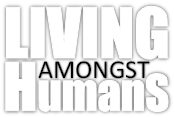
Words are important to humans. People can be offended by words alone. Humans especially value names. The quickest way to insult a person is by intentionally using the wrong name, or a diminutive form, or mispronouncing it. The same applies to names for groups of people. Humans are expert at grouping populations into specific named collections (see Boundary Issues) and then defending the names of their own group while finding inappropriate names for others.
I have difficulty being offended by words or misused names. I depend much more on a person’s actions than words, but I have learned through a lifetime of careful observation that humans are different. I am careful when using names and group labels. My rule of thumb is to call a person or a group as they do themselves. The complication with a group, though, is that not everyone in the group agrees on what it should be called.
It is common for parents of autistic children to say their child has autism. They want to believe the issues they—and their child—struggle with can be lessened with the proper administration of treatment and therapy. This is understandable and, in many cases, measurably realized. The parents want the world to know, want to believe themselves, that there is so much more to their child than the autism, that characterizing the child as autistic stigmatizes a complete person in one negative word. Caregivers and mental health professionals support this form of political correctness (see The Autistic Child). They believe in putting the person first (a “person with autism”) rather than leading with the ailment.
I do not deny the point of view of these humans. In many ways their position is valid. There is so much about these children—and the adults they become—beyond being autistic. The hope and struggle for improvement is justified and often, sometimes to a significant degree, achievable. Like other examples of political correctness, it is built upon a reasonable foundation, but ends up as an overly broad generalization bolstered by the disfavor of the proponents if contravened.
There are parents who would condemn me for calling their children autistic. I’m not. I’m talking about me. Those autistic children have a right to make their own choice. My hope is they eventually can, either through realization or therapy. Sadly, there are some who will never be able to. These people will be dependent, in some sense, for all of their lives, and it is the right of their guardians to use what terminology they see fit.
I am left-handed. I am male. And I am autistic. Those are three fundamental consequences of the specific architecture and wiring of my brain. They were with me when I was born and they will endure my lifetime. They define me only to the extent I allow them to. But I do not suffer as a person with left-handedness. I am not a victim of maleness, nor am I afflicted with autism. I am autistic. That is the nature of who I am, or at least one of the natures.
Though I am fundamentally autistic, left-handed and male, I adapt. I have learned to operate a chainsaw with my right hand. I must, because chainsaws, like so many aspects of our world, are constructed for the right-handed. Still, I am very cautious using a chainsaw, for fear of slipping up. The consequences of a misdirected blade would be unpleasant. Similarly, society is built up assuming behaviors consistent with human, non-autistic, minds. I put a lot of effort into modifying my actions to interact more successfully with humans. When I lead a meeting at work, or speak to an assembly of hundreds of people, there is little evidence how carefully I am stepping nor how much effort I am putting into appearing natural, competent and engaging.
I am not offended being called a person with autism. A label cannot trouble me. But I am saddened by the inaccuracy. In all things, I strive for truth and clarity. Calling me a person with autism contradicts my reality. It suggests I have a disease that can be cured or managed to the point where the symptoms are controllable—that somehow the mantle of autism can be lifted from my burdened mind and allow me to operate like the rest of humanity. That will never be. Beyond denying who I am, such a concept overlooks the pain I have endured as I struggled for decades to achieve competence in this human-contrived world, the pain I endure every day as I stand upright, braced against the effort it takes to adapt and cope (see Letting Him Out). It denies me credit for my accomplishment and underestimates the energy I spend to prop up this human simulacrum.

Ok, so I’ve only known you for 48 years. But “natural, competent and engaging” barely begins to scratch the surface of the miracles and wonders bound up in this “Jim Jacobson”. I love you and think the world is lucky to have you. Especially now that you are blogging about it. I look forward to your posts.
Thank you, David. Your words encourage me to continue, so stay tuned!